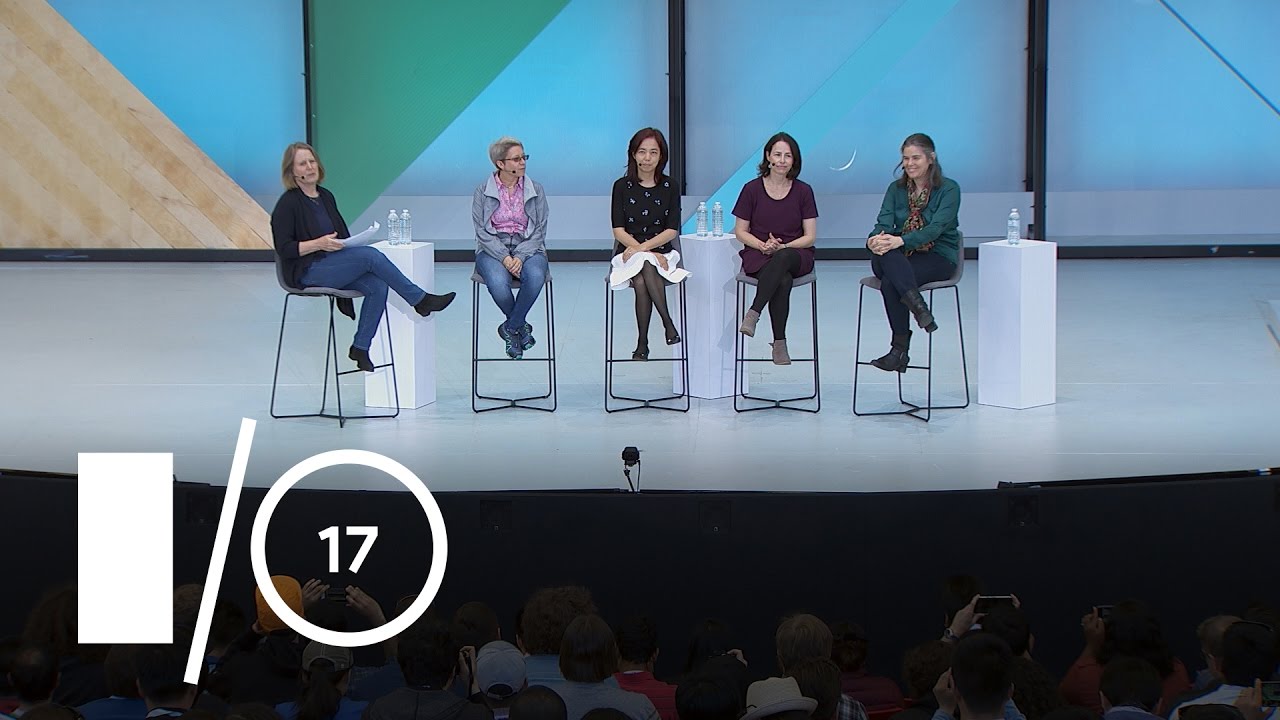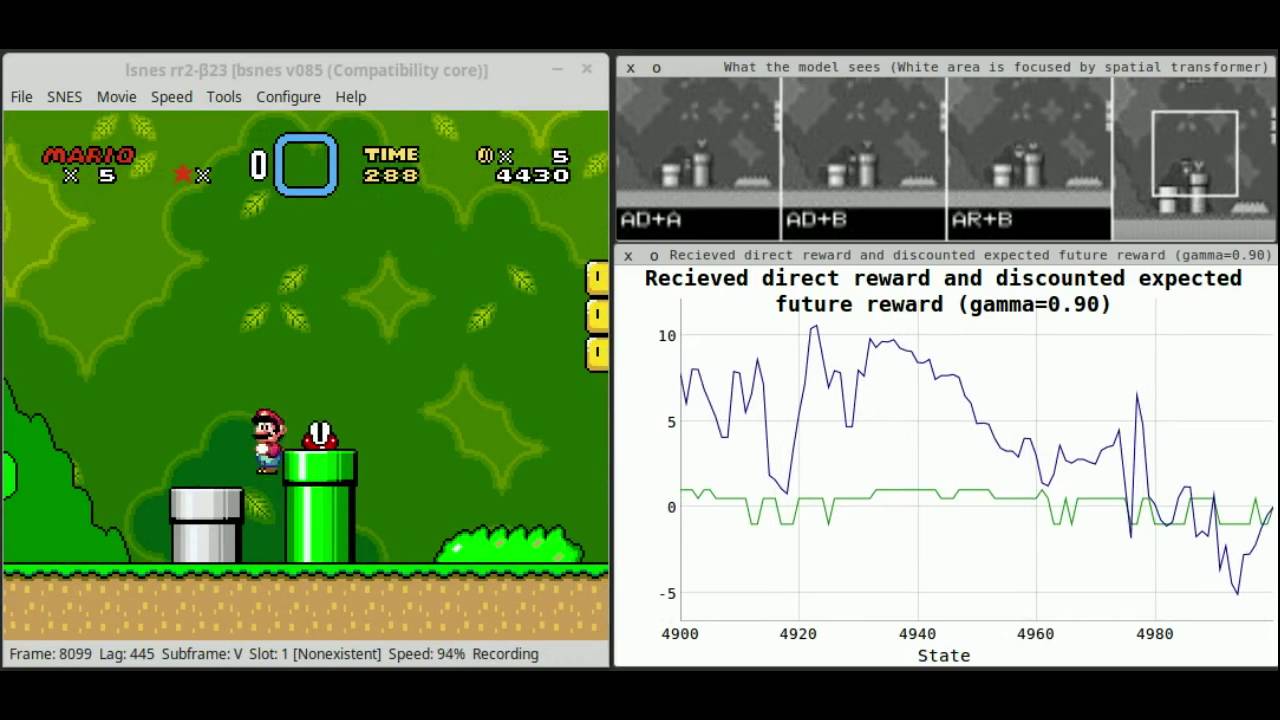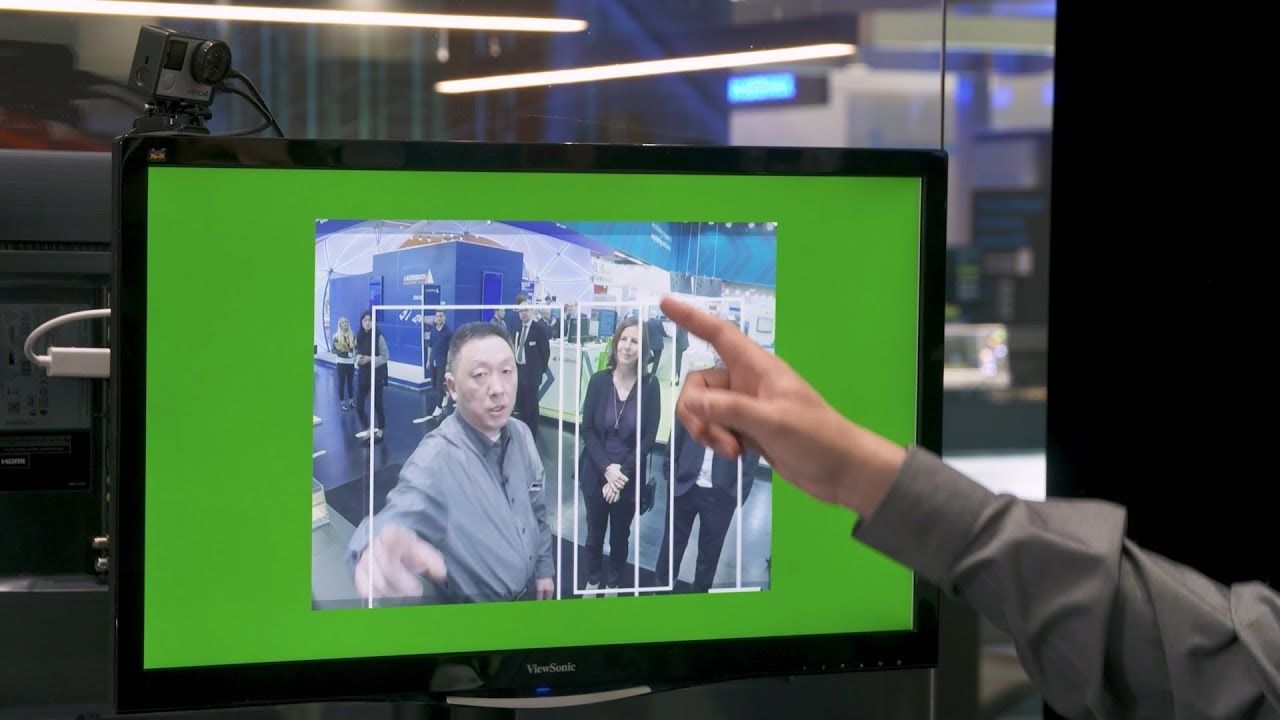Google Developers
We are in the middle of a major shift in computing that’s transitioning us from a mobile-first world into one that’s AI-first. AI will touch every industry and transform the products and services we use daily. Breakthroughs in machine learning have enabled dramatic improvements in the quality of Google Translate, made your photos easier to organize with Google Photos, and enabled improvements in Search, Maps, YouTube, and more. We’re also sharing the underlying technology with developers and researchers via open-source software such as TensorFlow, academic publications, and a full suite of Cloud machine learning services. Join this session to hear some of Alphabet’s top machine learning experts discuss their cutting-edge research and the opportunities they see ahead.
See all the talks from Google I/O ’17 here: https://goo.gl/D0D4VE
Watch more Android talks at I/O ’17 here: https://goo.gl/c0LWYl
Watch more Chrome talks at I/O ’17 here: https://goo.gl/Q1bFGY
Watch more Firebase talks at I/O ’17 here: https://goo.gl/pmO4Dr
Subscribe to the Google Developers channel: http://goo.gl/mQyv5L
#io17 #GoogleIO #GoogleIO2017
Source




thank you!
Very inspiring session.
I know I'm not smart but what's the difference between massive if/ else statements and AI. It's a bigger decision tree in simple terms right?
Data from all artificial brain machines will be disseminated to other artificial brain machines to be synchronized and then reassembled for processing by the computer, then distributed again to all artificial brain machines and so on …… this way is expected to extend the life of humans . Why not just developed an artificial immune system or so-called human body's defense system.
I think it was smart to only build an AI that would never have an access to the Internet. One would only manually upload information to it, give it a task and wait for it to create various solutions from which people could pick up the most appropriate ones for the fulfilling of the required task. The AI should also have no ability to create or do anything besides creating ideas. it should also not have an understanding of itself as an individual. In other words, it should only be an isolated machine that can be used in solving scientific problems.
All women? Sexism! How am I suppose to relate… (lots of sarcasm)
All panelists female even tho men enroll in STEM much more than women. I'm sure that happened through fair competition and pro-female bias had nothing to do with it.
if these are just the first drops in an ocean…what will it be next ?
I love this.
Google is a GREAT company !
I am so excited about how we've developed X in the past, it has a huge role to play in developing Y, it is a very interesting time with so many challenges overcome yet so many new ones blah blah blah blah.. replace X and Y with AI, robotics, machine learning, speech recognition etc. I expected more from top google scientists. I must say that this could be better done by a simple bot just repeating the same statements in different configurations without much facts or information. The topic deserves much better coverage then served by this panel.
Nothing says AI and future more than a Politically correct assembly and parade of women on a stage.
非常好的采访,收益匪浅啊!
A panel of women talking about something "artificial"
Womyn and Artificial intelligence ?!?? Whats next ?!? A monkey and a grenade launcher ?!???
So nice of an overview from experts.
where are the white males? Driven from google by the diversity initiative? or down in the engine rooms of google writing the actual code?
interested in AI and MACHINE LEARNING visit my yech blog to get a simple and lucid intro adstark1.blogspot.com and must put ur views too
I hope this video inspires more girls to join the world of sciences and complex thinking
Thank you Google, Great talk about Artificial Intelligence by fei fei li
Thank God for nerds.
machine learning from AI has been acquired by alien zeta reticuli.
I'm just here for Fei Fei. CS231n yay!
25:55 It's so mind blowing to me how much of research is motivated by nature. It seems really obvious, but it's not like I look at my phone throughout the day and think "gee, I'm able to unlock my phone with my face because of insights scientists gleaned from nature"
DATA is already in sequence we need a purpose to pick up right data at right time. The purpose is to make human life better, faster and comfortable.
Yes I love this! Power to the women! This is what little girls need to look up to not Kim Kardashian and Barbie dolls! Do something meaniful in your life and stop looking in the mirrior every 5 minutes! This is what women should look like cause we are human beings not objects for men to play with! So use your brain girls and have some self respect! Listen to these women they are where we need to be.
These are excellent AI researchers. But Google's Deepmind leaders are at a higher level than anybody in the field of AI, IMHO.
Google trying to make it seem like they have a lot of babes,those are literally the only babes that work there
At 15:38-40 the subtitles read: "So visualization is one way that you can sort of peak and try to understand what's happening in these systems". The word should be "peek". The speaker actually reinforces what she says by her body language (her hands and arms looking over the edge of something). "peak" makes no sense in the context and you may be able to guess what she means simply by listening to the audio, maybe in combination with her body language, and by ignoring the incorrect subtitles.
Is an AI system doing the subtitles?
Yeah, humans too can produce utter garbage in creating subtitles (we could open a channel for some real doozies!) but at least any reasonably educated person can pick up the mistake and make them read sensibly. Does it matter? Yes, it does to people who are deaf and to people who do not know the language being subtitled. English has a lot of homonyms and their misuse gives rise to jokes, and you can still enjoy the opera/film in another language even if mistakes are made, but correct "translation" is incredibly important in international councils like the UN.
"That is why it was called Babel—because there the Lord confused the language of the whole world. From there the Lord scattered them over the face of the whole earth."
AI has a long, long way to go to making a "good hash" of speech recognition. What a lot of levels of meaning and punning can be made out of those two little words 🙂
https://youtu.be/U6IxDvTN_f8
I love how a lot of sexist men are off-putted and somehow wants to undermine this video. Feeling emasculated?
go women researchers!
They use papers?
The moderator is in way over her head, isn't she? She seems really nervious and as tho she just bearly understands the language the pannelists are speaking.
Here's Google throwing the gauntlet down on gender diversity . . .to Apple
I really didn't think it possible, a forty-four minute "lecture" with a content so vacuous, so utterly devoid of useful details. It seems the content is geared towards a pre-teenage audience, a primer if you will, AI 101.
It is astounding how this group can speak for so long & say so little!